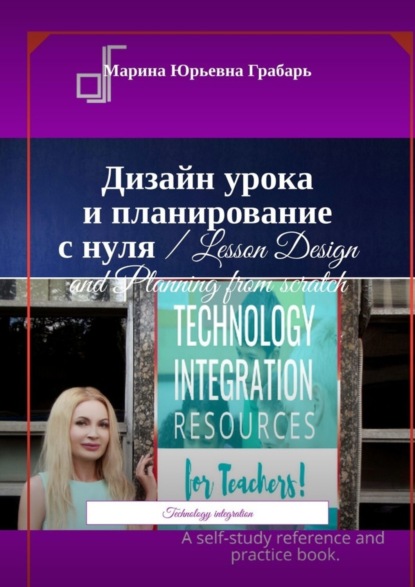По всем вопросам обращайтесь на: info@litportal.ru
(©) 2003-2024.
✖
Дизайн урока и планирование с нуля / Lesson Design and Planning from scratch. Technology integration
Настройки чтения
Размер шрифта
Высота строк
Поля
If your students are slow to start talking, inspire them with some of your own photos
4 – Travel
Challenge their English by getting them to describe what they see in the pictures, and let them guess where it is. Some students will warm up by asking you questions about your travels, and in turn, you can ask about where they have traveled to, or where they’d like to go. Some students learning English are very passionate about traveling and can regale you with their stories.
Topics to Avoid
Their Opinions
Although you will find students who want to discuss their opinions – many find the
Western openness to debate refreshing and seek it out – nothing will bring uncomfortable silence like pushing a student for their opinion (especially in a group).
5 – Their Opinions
Too Much About Your Country
Although you will find students who want to discuss their opinions – many find the Western openness to debate refreshing and seek it out – nothing will bring uncomfortable silence like pushing a student for their opinion (especially in a group).
6 – Too Much About Your Country
Meaning anything that compares your learners` home country to your country and seems like you are extolling the superiority of your own country, e.g. «Well, in… people aren’t afraid to express their opinions…» Some students will be very interested in your country and will ask you questions about it; by all means, talk about it then, but remember that people can get pretty defensive if you suggest that your country is somehow better than their in any way!
Many of your students will ask you questions that seem pretty rude – «How old are you?» «Do you have a boyfriend?» or even «How much do you weigh?»
7 – Their Personal Lives
However, if you try to delve too much into your students’ personal lives, they might close up and feel uncomfortable. This completely depends on the students – some told me all about their marital problems, while others didn’t want to discuss a thing. Don’t push it, but if it comes up naturally, that’s fine!
It’s probably quite obvious, but discussing salaries and how much things cost can seem a little crude, and make some students feel uncomfortable
8 – Money
If your students happen to be economists of some kind, it’s different – you can happily chat about banking and economics for hours.
Of course, every student will have different topics that they like and dislike, but the general rule for starting out is – keep it trivial and light!
Your lessons should be light-hearted and fun, not heavy and serious. As you get to know your students, you’ll get a better idea of how to get them to talk!
Select Appropriate Materials for your Learners
Authentic-based materials as the materials which are prepared for native speakers and not designed to be used for teaching purposes.
Authentic-based materials can be motivating because they are proof that the language is used for the real-life purpose by real people. The difference is not in the language materials themselves but rather on their outcomes and their effectiveness. What is the age of the students you are planning this material for? Describe your students’ language proficiency. List the title and author. Discuss why you think this material would be appropriate for your learners.
How to Find Reading and Interest Levels for Books
Accelerated Reader Bookfinder (http://www.arbookfind.com/)
Lists reading levels and interest levels of books in the AR program. Can search by keyword to find books on a topic.«Collections» tab lists awards list by state and category.
The Internet Archive (https://help.archive.org/hc/en-us)
Like a paper library, they provide free access to researchers, historians, scholars, the print disabled, and the general public. Their mission is to provide Universal Access to All Knowledge.
Shift your perspective Join TED Recommends (https://www.ted.com/)
TED is a nonpartisan nonprofit devoted to spreading ideas, usually in the form of short, powerful talks. TED began in 1984 as a conference where Technology, Entertainment and Design converged, and today covers almost all topics – from science to business to global issues – in more than 110 languages.
STEM Lab. (https://thestemlaboratory.com/)
FUN SCIENCE, TECHNOLOGY, ENGINEERING, AND MATH ACTIVITIES!
Lesson Improvement Tips
1) Think Outside (No Box Required)
Try exploring the ways animals adapt to winter (https://www.wisewire.com/item/winter-is-coming/), learning about air pressure (https://www.wisewire.com/item/a-pressing-engagement/), or creating a (https://www.wisewire.com/item/create-a-comet-with-dry-ice/)comet (https://www.wisewire.com/item/create-a-comet-with-dry-ice/). Learning outside can involve the senses in ways the classroom doesn’t, lending itself well to creative forms of expression suited for art, literature or English classes as well.
2) Start at the Test (And Work Your Way Back)
Staying on target with your objectives throughout the year is typically based on how you’re able to bring learning outcomes together along the way. In a list of assessment writing tips compiled by Brown University, researchers cited the importance of assessments as part of the learning process. Knowing ahead of time how you plan to assess students on a given topic can be an incredibly valuable tool in lesson planning. For your students, it may be the «end» of the process, but for you, it’s the starting point and can help create an effective outline of talking points throughout your lesson plan to ensure nothing is missed along the way.
3) Keep the Bigger Picture in Mind
Sometimes it takes getting back to basics to head in the right direction. That means focusing on what you need to accomplish in the long-term, learning from experiences along the way, and staying focused throughout.
It’s important to remember each piece of the puzzle is created differently on purpose. Just as each student will bring a unique perspective to the larger group, each lesson plan is a necessary element of the end goal. Sometimes things will work, other times they won’t. Some lessons will run smoothly and others will flop. But the ability to stay focused on the piece that plays in the bigger picture at the end of the school year will increase the productivity and effectiveness of the entire process.
The components of a well-constructed lesson plan may vary slightly from one topic to another, but each should include a warm-up activity, introduction, practice activity, production, and review. An article in Busy Teacher walks through some suggested steps of writing a lesson plan, focusing on how each step comes together over the course of a school day, and how each school day comes together over the course of a school year.
It’s best to help get students in the right frame of mind, to begin with, and start by helping them understand what it is they will be learning. Practice and production are also key and should involve work on the student’s part to learn more about the topic. And a review is necessary to bring everything full circle in a way that not only stays with the students but also could be replicated by another teacher someday.
4) Stay Flexible
This may seem to contradict the previous insights of this article, but it is just as important as everything else. Making adjustments as you go is a necessary component to proper lesson plan execution. This will obviously depend greatly on the makeup of students, their personalities, their learning styles, and how each of those things comes together into the overall classroom environment. The best place to start is in knowing each individual so you are equipped to anticipate some of the necessary changes instead of reacting to them at the moment. That could involve stepping outside your comfort zone by trying a new activity for something you’ve taught the same way multiple years in a row. Other teachers are a great place to start, but there are also so many resources online (https://www.wisewire.com/explore/middle/)for any grade level and subject area. Sometimes being flexible in the classroom means stepping outside your comfort zone to accomplish what’s best for the students.
5) What Would You Do?
Put yourself in your students’ shoes. What were you curious about when you were their age? What questions did you have about a topic? What interests you most? What do you still want to know? All of these questions are excellent things to ask yourself if you end up in a lesson planning block.
Classrooms have obviously changed in some pretty fundamental ways since most of us were in school, but that doesn’t take away from the basics of imagination, creativity and a thirst for learning. One way to embrace a changing environment is to find new ways to integrate technology into your lesson plans. There are several things to consider when (https://www.wisewire.com/blog/8-questions-teachers-ask-evaluating-edtech/)evaluating Edtech in the classroom (https://www.wisewire.com/blog/8-questions-teachers-ask-evaluating-edtech/), but it’s a best practice to keep an open mind to trying something new as often as you’re comfortable.
Start your projects. Practice Lab 1
Project 1. Reading/Writing Lesson
Project 2. Listening/ Speaking Lesson






